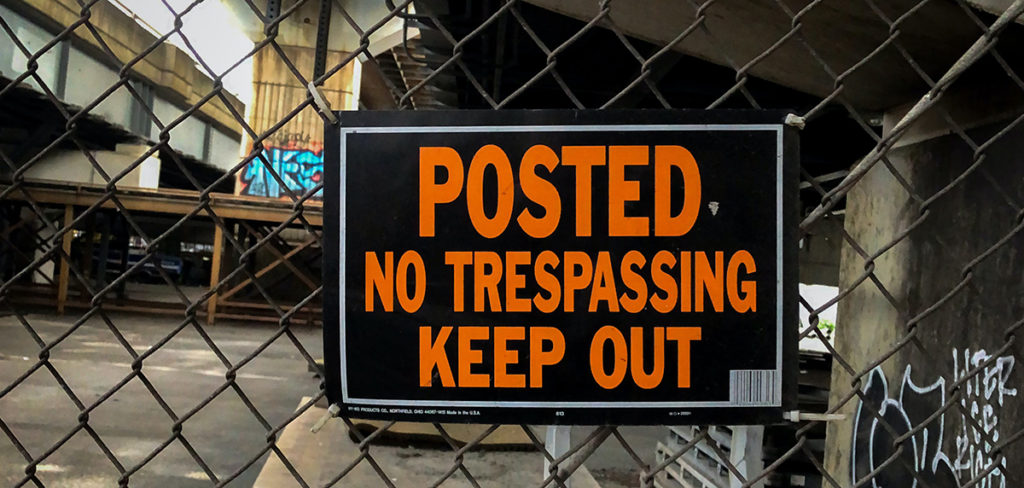Trespassing is a crime you can commit by being on someone’s property without their express permission. In most cases, it’s a misdemeanor punishable by up to six months in jail and a fine of $1,000. However, this offense carries varying degrees of severity under California law.
Types of Trespassing
California Penal Code 602 defines dozens of situations that constitute trespassing, ranging from mundane to obscure. However, they all share the same fundamental criteria:
- The defendant purposely entered someone else’s property, intending to interfere with the owner’s property rights.
- The defendant damaged someone else’s belongings or prevented them from doing business.
- The defendant unlawfully remained on privately owned land or in a home or business after being asked to leave.
While trespassing charges are typically misdemeanors, milder cases may be infractions, which are subject to smaller fines. Meanwhile, aggravated trespassing involves a threat to commit violence and can carry more severe penalties.
Examples of Trespassing
Under California law, trespassing does not necessarily involve “breaking and entering.” For example, you can commit trespassing if you go into someone’s privately owned restaurant or store and deliberately create a disturbance that drives other customers away. Technically, you had the owner’s consent to be on the property, but you interfered with their livelihood by being disruptive and making their patrons uncomfortable.
On the other hand, if the prosecution can’t prove you did not successfully carry out your intent to interfere with someone else’s property rights, you are not criminally liable for trespassing. For instance, if you stand on the sidewalk outside someone’s shop attempting to collect signatures for a petition, but the shoppers can easily ignore you, it may be possible to argue that you were not causing trouble.
One of the most common forms of trespassing is entering someone’s property that is enclosed with a fence or has prominently posted “No Trespassing” signs. Under California trespassing law, the first two offenses of this nature are merely infractions, punishable by fines of $75 and $250, respectively. You would be charged for misdemeanor trespassing for your third offense on the same land.
Legal Defenses in a Trespassing Case
Facing criminal charges can be frightening, especially if you had no idea you were doing anything illegal when you got caught trespassing. An experienced defense attorney can take your case, arguing on your behalf to get trespassing charges dismissed or reduced to an infraction. Potential legal defenses include:
- You had a lawful reason to be on the property.
- You were engaging in constitutionally protected activities, such as exercising your First Amendment rights.
- You had the owner’s consent to be on their land or in their home or business.
- You never obstructed the activities taking place on the property.
- You did not prevent the owner from enjoying or using their property for any substantial length of time.
- The property owner did not enclose their land with a fence or post any “No Trespassing” signs.
Your Orange County Criminal Defense Lawyer
The Law Office of Ronald G. Brower has a long and successful track record of representing high-profile cases. Our attorneys treat every client with the respect and care they deserve. To learn more about how we can help you, contact us today to schedule a no-obligation consultation.

